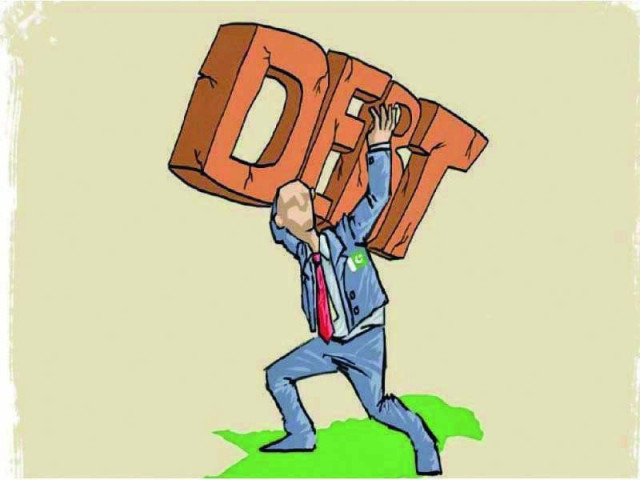Year in review: Will the economy survive 2023?
Experts predict ‘negative economic growth’ for third time in history

Pakistan’s resilient economy is stuck, once again, between a rock and a hard place. The high political drama and global geopolitical crisis have brought it to a crossroads but the way forward is full of pain and no path towards economic stability is possible without political stability.
The economy has deteriorated from bad to worse in 2022. The outlook for the next year suggests that the tough phase may continue for some time, despite the government taking some corrective measures immediately.
A section of experts believe that the country is heading towards witnessing “negative economic growth” for the third time in the history of Pakistan in the current fiscal year (Jul-June) 2022-23.
The key crisis in the domestic economy is the fall of the country’s foreign exchange reserves to the alarming level of $5.8 billion and the repayment of foreign debt worth $73 billion in the next three years (till end of fiscal year 2025).
The rest of the crises in the economy are by-products of the key crisis. They include a 49-year high inflation rate of 27%, a 23-year high key policy rate (benchmark interest rate) at 16%, increased rate of taxes and 28% devaluation of the domestic currency to Rs227 against the US dollar in 2022.
A mistake at this crucial juncture would be to part ways with the International Monetary Fund (IMF) and to consider the installation of a technocratic government. Both of these choices would be tantamount to economic suicide for the country. The dark clouds of likely default loom large on the fiscal horizon.
The best solution to the prevailing crisis is to get foreign debt restructured, as soon as possible.
Speaking to The Express Tribune, Former caretaker finance minister Salman Shah suggested, “The government should resume the IMF loan programme worth $6.5 billion despite the harsh conditions attached to it. It should then develop a political consensus to hold parliamentary elections with clear timelines. A caretaker government should then be established, general elections be held making way for a popular government to come into power for the full elected period of five-years. The new government must then take tough decisions and oversee reforms across the economy, attract foreign investment, transform the inward (foreign debt reliant) economy into an export-driven economy and free the nation from economic hostage.”
The resumption of the IMF programme is a must to acquire the required foreign financing and to become, over the course of time, a self-reliant nation.
Shah suggested that the “government opt for restructuring foreign debt,” meaning it should go to the lenders and convince them to reschedule timelines to repay the debt, where possible.
“The current government in office is a very weak political government. It does not have the capacity required to sail the nation out from the current economic crisis,” he emphasised.
“Installing a technocratic government is a failed idea. The world has already tested it and found it to be a waste of time and resources,” he added.
“Political instability remains the single largest threat to the economic survival of Pakistan. It is destabilising the economy with every passing day,” Shah underscored.
“In addition to the political crisis, the devastating floods hit the economy hard in 2022,” he further noted.
Ismail Iqbal Securities Head of Research, Fahad Rauf predicts that, “Economic growth will remain slow in the current fiscal year, much below 2%. There are even chances of the growth turning negative in the year,” he said.
“A number of businesses have partially or completely shut down due to the lack of access to dollars to import raw material and machinery. Besides, agronomy is on the decline due to no policy focus of the government,” explained Rauf.
“There are two possible options to move on. One, the government agrees to implement stringent conditions agreed with the IMF to resume the loan programme and find some financial space to fix the current economic crisis. The second option is to part ways with the IMF, leading to Pakistan defaulting on its foreign debt repayments,” he commented.
“In both scenarios (with the IMF or without it), the country will continue to face high inflation readings of 23-24% on average in FY23 coupled with a shortage of goods, particularly energy and food,” Rauf stated.
“Only a miracle can save us from the impending debt crisis. The miracle could be if one or more friendly countries make heavy equity-based investment (not debt-based investment as happened in CPEC) worth $10-20 billion in Pakistan. Our immediate goal is to stop multiplying the crisis,” he said.
“In the long-run, the government needs to undertake reforms, particularly in the energy sector. We need to privatise loss-making state-owned entities (SOEs). This is a solution available on the table at present as well,” he further noted.



















COMMENTS
Comments are moderated and generally will be posted if they are on-topic and not abusive.
For more information, please see our Comments FAQ